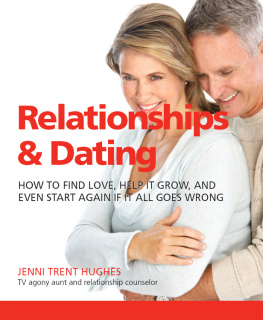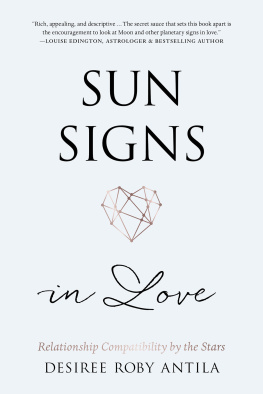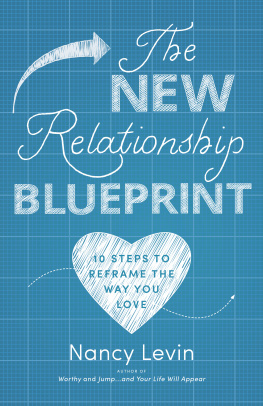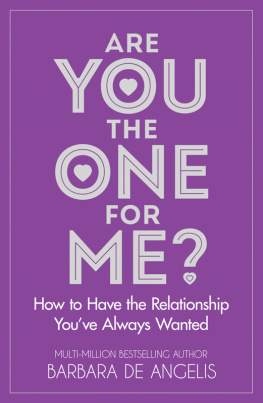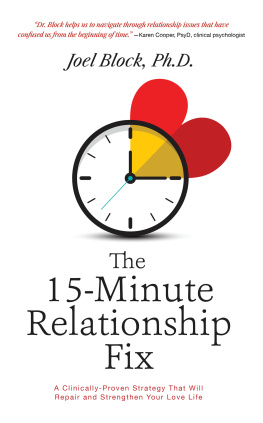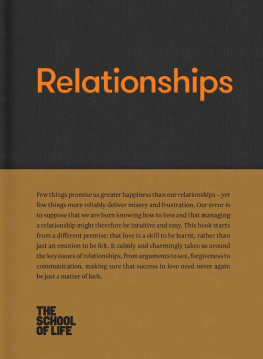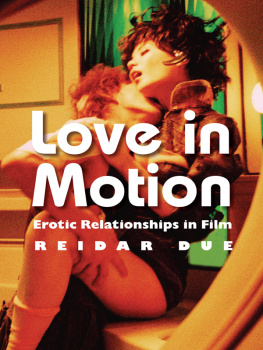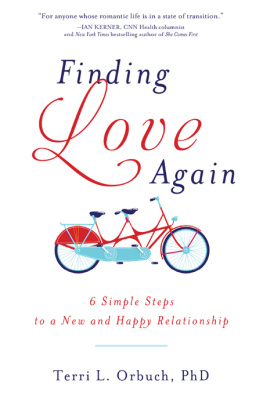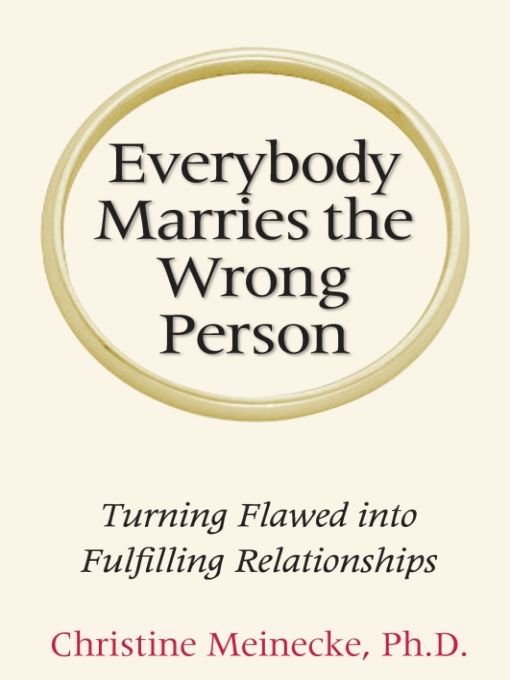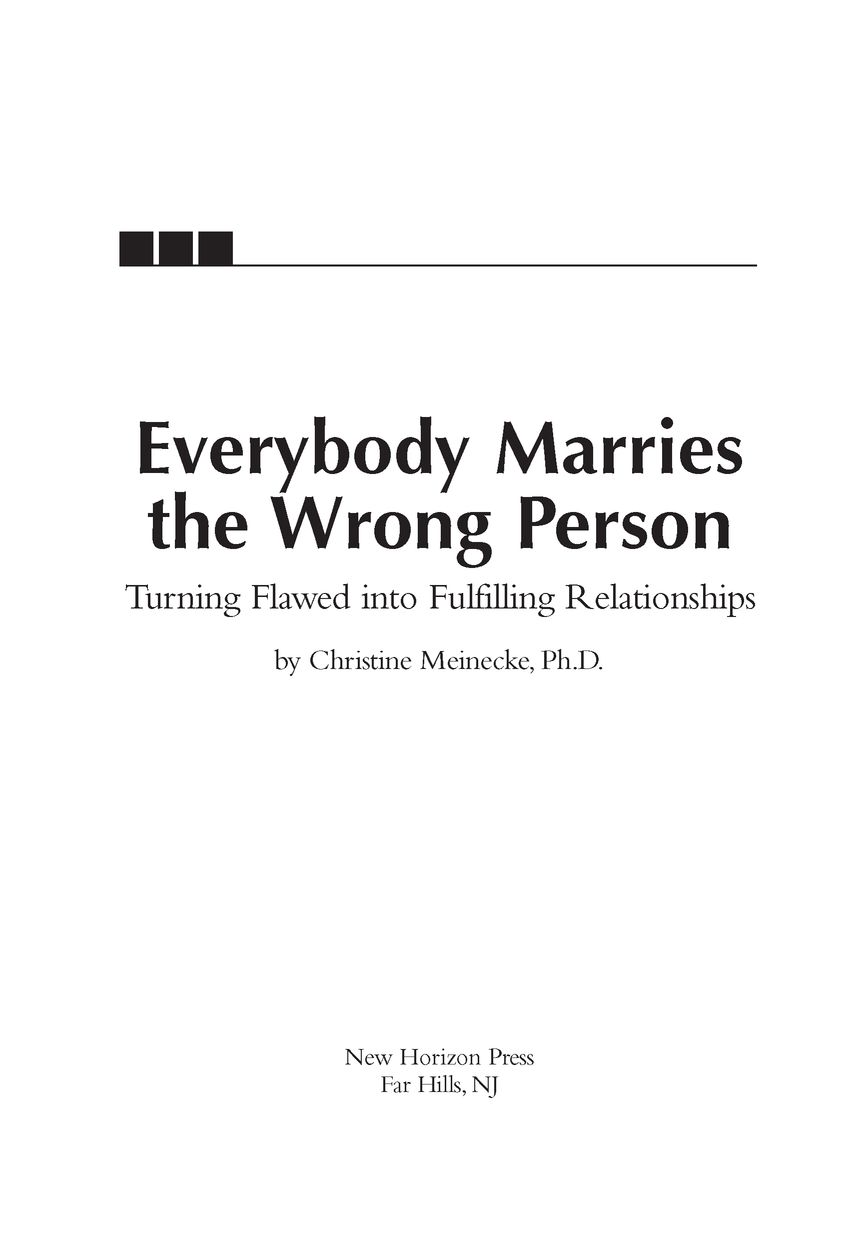Table of Contents
Authors Note
This book is based on the authors research, personal experiences and clients real life experiences. In order to protect privacy, names have been changed and identifying characteristics have been altered except for contributing experts. For purposes of simplifying usage, the pronouns his/her and s/he are sometimes used interchangeably. The information contained herein is not meant to be a substitute for professional evaluation and therapy with mental health professionals.
Part 1
What It Means
Chapter 1
Out with the Old
Everybody marries the wrong person.Yes, everybody. Not just reckless, unsuspecting people. Not just clueless teenage people. You married the wrong person and your spouse did, too.
What a Crazy Notion!
Some readers are thinking, What a crazy notion! Unlike everybody else, you believe you married the real Mr.Wonderful or Ms. Perfect. If, for any reason, your first reaction is to reject the premise that everybody marries the wrong person, please, keep reading.Your marital future depends on it.
Holy Cow!
Some readers are thinking, Holy cow! Ive never heard that before. Since new ideas interest you, youre keeping an open mind. And since keeping an open mind is the bedrock of psychological development, you could be well on your way to an ah-ha moment.
Ah-ha!
Some are thinking, Ah-ha! There could be something to this. Youre not as happily married as you expected to be. Youre tired of drama and dysfunction. Yet, nothing youve tried seems to show your spouse the error of his or her ways.
Longtime Companions, Too?
Some are wondering whether this crazy notion applies to longtime companions, too.Yes, it does. Everybody Marries the Wrong Person is for all, regardless if you are married in a traditional or nontraditional sense, living with a partner, seriously involved though not living together, straight, gay, lesbian, bisexual or transgendered.
Going Wrong with Old Thinking
Nobody wants to marry the wrong person. In fact, most of us are determined to marry the right person. We go wrong, because we are blinded by love and misled by myths and misconceptions. We go wrong, because we follow conventional guideposts (just as everyone before us has) and fail to ask ourselves, Where exactly is this leading? We go wrong because we base our expectations about marriage on old thinkingthe myths and misconceptions of conventional wisdom.
According to conventional wisdom, marrying the right person is the key to marital success. Although we hear that 40 to 50 percent of first marriages and 60 percent or more of second marriages end in divorce, we also hear that true love conquers all. So, we squeeze shut our eyes, cross our fingers and hope that of all the people choosing partners, we will choose most wisely.
We also hear that marital bliss turns to marital distress, because partners do not try hard enough. So, we vow not to be matrimonial slackers. We tell ourselves that of all the couples trying hard to avoid disaster, we will try hardest.
Paradoxically, couples expect to gain an unconventional result (marital success) by following conventional wisdom. Everybody Marries the Wrong Person reveals what is old and self-defeating about conventional wisdom and how we damage romantic relationships by basing our expectations on old thinking. After reading this book, you will know how to gain the unconventional result.
What Not to Do
Heres a preview of what lies ahead. Start by considering the headline and conventional advice offered by a syndicated advice columnist:
Stop holding emotions inside
Stop censoring yourself, start speaking up and see what happens. When in doubt, frame it in terms of your feelings. Your constant lateness makes me feel like I dont matter. Whether a complaint brings instant relief, starts a good conversation, makes your partner defensiveall these things help you feel out the limits of productive communication.
Whats wrong with this advice? Nothing, if you dont mind verbally vandalizing your relationship. Lets break it down bit by bit.
Stop holding emotions inside. First, the phrase holding emotions inside is a throwback to disco era psychology. Twenty-first century psychology debunks the common belief that we somehow damage our mental or physical health by holding emotions inside. It is also an old idea to believe that we undermine our power in relationships by failing to make our feelings known.
Stop censoring yourself. Unless youre in a life-threatening situation, ALWAYS censor yourself. Our brains are hardwired for survival, which predisposes us to shoot first and ask questions later. Mentally healthy partners hold their fire and utilize the rational mind.
Start speaking up and see what happens. We already know what happens when people speak up. Just tune into any reality show. Instead, start behaving rationally and see what happens.
When in doubt, frame it in terms of your feelings. When in doubt, frame it in terms of rational thoughts.
Your constant lateness makes me feel like I dont matter. One statement. Three kinds of wrong.
Your constant lateness guarantees a defensive reaction.
Makes me feel fails to take responsibility for your feelings.
Like I dont matter begs for trouble.
Helps you test the limits of productive communication. Blaming your partner for your feelings is the limit of this.A save can be made only if your partner practices more emotional restraint than you do.
The problem with staking marital futures on conventional wisdom is that conventional wisdom is often wrong. As it has been repeatedly demonstrated, humans are prone to the world-is-flat assumptions. In the sixth century B.C.E., Pythagoras believed the earth to be round, yet at the end of the C.E. fifteenth century, public consensus was that Columbus would go sailing off the edge of the earth. Or maybe this belief about Columbus contemporaries is simply todays conventional wisdom. Regardless, from Pythagoras to the contemporary bestseller Freakonomics, challengers warn that conventional wisdom is a web of fabrication, self-interest and convenience and not necessarily true.
So, why do people go on believing things that are not factual? How, in the information age, do we remain uninformed and misinformed? Are we so preoccupied with the mundane that we fail to register profound new facts? Are we intellectually lazy? Ideological rather than logical?
Twenty-first century answers to such questions can be found in the burgeoning body of knowledge about how the brain works. Daniel Gilbert contributes by pointing out in Stumbling on Happiness that our conclusions can be fundamentally wrong due to shortcomings of brain functions such as imagination, memory and perception. Today, if Joe Average holds fundamentally wrong beliefs about the shape of the earth (spherical versus infinite plane), it is relatively inconsequential to his daily life. If, however, Joe Average happens to be married and holds fundamentally wrong beliefs about romantic relationships, the consequences to his daily life are many, varied and harsh.


